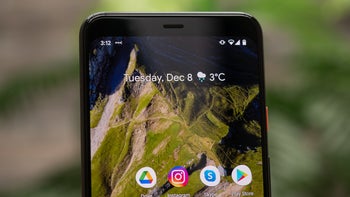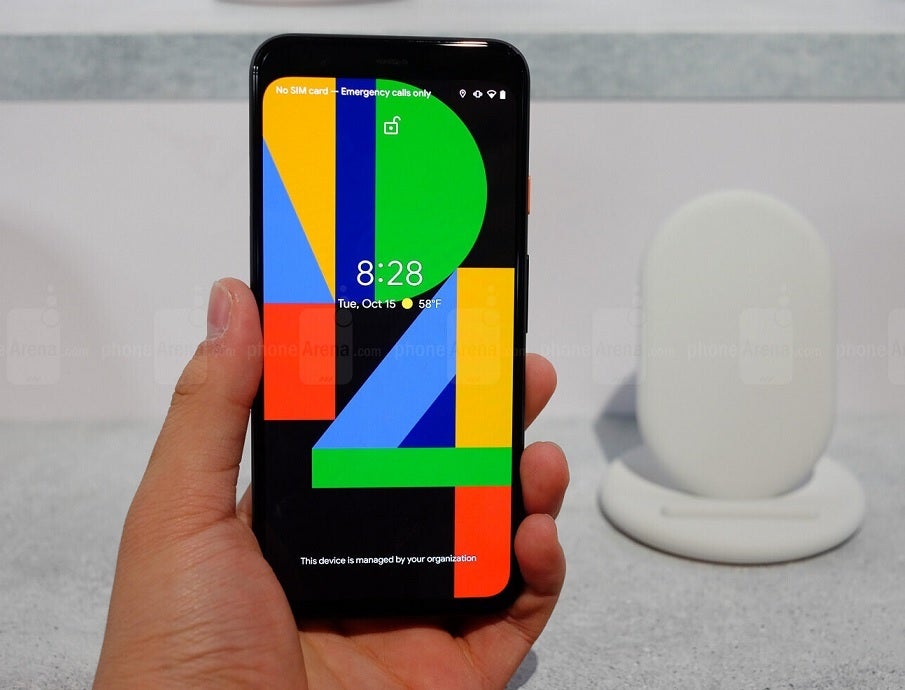Google settles suit over "deceptive" Pixel 4 radio ads for $8 million

Last year we told you that the state of Texas, led by Attorney General Ken Paxton, was suing Google over deceptive radio ads for the Pixel 4 series that ran in 2019 and 2020. By having DJs read certain copy during the commercials, Google made it sound as though these announcers had personally used the Pixel 4 and Pixel 4 XL although they never touched the phones. As a result, the state said that Google engaged in false, misleading, and deceptive acts and practices."
The state of Texas collects $8 million from Google from a settlement over deceptive Pixel 4 radio ads
When the copy was written for the announcers to read, the Pixel 4 and Pixel 4 XL had not been released which meant that every word uttered by the DJs in support of the two handsets was made up. On Friday, Attorney General Paxton's office announced that Google had agreed to pay $8 million to settle the case. In a previous settlement involving a separate lawsuit over the same radio spots, Google settled with the Federal Trade Commission (FTC) and six other states for $9 million.

Google had DJs promote Night Sight on the Pixel 4 even though the phone had yet to be released
Google created ad copy for the iHeartMedia announcers that went out over the air. The scripts had the DJs say that they used the phones and loved the Night Sight feature that allowed them to take pictures in low-light environments without the use of flash. Examples of what the announcers said include, "The only thing I love more than taking the perfect photo? Taking the perfect photo at night. With Google Pixel 4 both are a cinch. It’s my favorite phone camera out there, especially in low light, thanks to Night Sight Mode."
Another more ironic script had the DJs say, "I’ve been taking studio-like photos of everything...my son's football game... a meteor shower... a rare spotted owl that landed in my backyard. Pics or it didn’t happen, am I right?" It didn't happen since the phones had not been released when the ads first played and Google failed to provide the announcers with advanced Pixel 4 units.
An ad promoting Google Assistant on the Pixel 4 was also considered misleading. The copy said, "Pixel 4 is more than just great pics. It’s also great at helping me get stuff done, thanks to the new voice-activated Google Assistant that can handle multiple tasks at once. I can read up on the latest health fads, ask for directions to the nearest goat yoga class (yes, that's a thing), and text the location to mom hands-free."
A statement from the Texas Attorney General's office on Friday said, "Texas will do whatever it takes to protect our citizens and our state economy from corporations' false and misleading advertisements. If Google is going to advertise in Texas, their statements better be true. In this case, the company made statements that were blatantly false, and our settlement holds Google accountable for lying to Texans for financial gain. Google enjoys significant influence over individual consumers and the marketplace broadly."
The Pixel 4 had secure Face Unlock which used the same technology as Apple's Face ID"
Paxton added, "It is imperative that large companies do not expect or enjoy special treatment under the law. They must be held accountable for their misdeeds. I will continue to protect the integrity of our marketplace and ensure that companies who lie to Texas consumers are held to account."
The Pixel 4 and Pixel 4 XL were supposed to be iPhone challengers and both of them had secure Face Unlock which used the same technology employed by Apple to create a secure 3D image of the user's face. The technology would be used to unlock the handset and verify the user's identity for digital payments and to open some apps.
Google also equipped the phone with its Soli radar chip to power a feature called Motion Sense. Despite high expectations, Google under-delivered here as gestures could be used only to dismiss calls, timers, and alarms, skip songs, and play or pause music. And while the phones did have a 90Hz refresh rate on their displays, the batteries were undersized at 2800mAh and 3700mAh for the Pixel 4 and 4 XL respectively.
The Pixel 4 line bombed so hard that Google took a breath and a step backward by making the Pixel 5 a single, less-premium handset. Google then decided to go all in on the Pixel ecosystem by creating the Pixel 6 series.













Things that are NOT allowed: